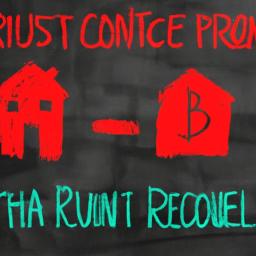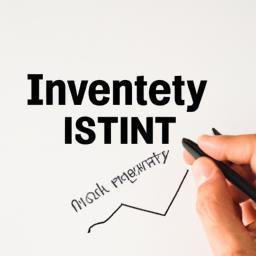Imagine standing at a crossroads where one path leads you to a charming rental apartment in the heart of the city, while the other promises the dream of home ownership with white picket fences and weekend brunches on your very own patio. The long-standing debate between renting and buying a home is a journey through numbers, emotions, and future aspirations that often leaves even the most seasoned decision-makers scratching their heads in bewilderment. But what if a simple tool could illuminate that path, providing clarity amidst the confusion? Welcome to our deep dive into “Is It Better to Rent or Buy? A Financial Calculator.” Here, we dissect the complexities and unveil a powerful asset designed to help you navigate one of life’s most significant financial decisions with confidence and precision.
Exploring the True Cost: Renting vs. Buying
When considering the journey towards homeownership, the question “Should I rent or buy?” often generates heated debates. Both choices have their perks and potential financial pitfalls. Making an informed decision requires a deep dive into each option’s true cost.
Renting brings flexibility, fewer responsibilities, and usually requires less upfront money. Setting forth as a renter means you’re not tied down by a mortgage or property taxes. Repairs and maintenance are typically a landlord’s responsibility, easing your financial and time commitments.
- Flexibility: Easy to relocate for job changes or personal reasons.
- Maintenance: Largely covered by the landlord.
- Upfront Costs: Usually lower, mostly consisting of a deposit and sometimes the first and last month’s rent.
Conversely, buying a home is often seen as an investment towards building equity. Ownership provides stability, an opportunity to personalize your living space, and the potential for property value appreciation. However, the initial expenses can be steep, and ongoing costs can catch many off-guard.
- Equity: Over time, mortgage payments contribute to your ownership stake in the property.
- Stability: Provides a sense of permanence and community belonging.
- Personalization: Freedom to renovate and decorate as you please.
To better understand the financial landscape, let’s look at a side-by-side cost comparison over a 5-year period:
| Renting | Buying | |
|---|---|---|
| Initial Costs | $4,000 | $20,000 |
| Monthly Payment | $1,200 | $1,500 |
| Maintenance | $0 | $3,000 |
| Total 5-Year Cost | $76,000 | $113,000 |
It’s crucial to consider additional hidden costs. Renters may face annual rent increases, lack of investment growth, and restrictions on customizing their space. On the flip side, homeowners need to account for property taxes, home insurance, and occasional repairs or renovations.
Ultimately, the decision boils down to your personal financial situation, lifestyle preferences, and long-term goals. For some, putting down roots and investing in property is a dream come true. For others, the flexibility and lower risk of renting might be more appealing. Using a financial calculator can help quantify these considerations, giving you a clearer picture of what’s financially best for you.

Key Financial Metrics to Consider in Your Decision
When deciding whether to rent or buy, considering specific financial metrics can significantly impact your decision. Here, we’ll delve into some essential figures that should be at the forefront of your calculations.
1. Monthly Housing Costs
Evaluating the recurring expenses associated with renting and buying is paramount. For renters, this includes the monthly rent, renter’s insurance, and utilities. For buyers, the mortgage payment, property taxes, homeowner’s insurance, and maintenance costs are vital considerations. Here’s a quick breakdown:
- Renters: Rent + Renters Insurance + Utilities
- Buyers: Mortgage Payment + Property Taxes + Homeowner’s Insurance + Maintenance
2. Return on Investment (ROI)
The financial upside of buying can be assessed by the appreciation in property value over time. Compare this potential gain to how much interest you might earn if you invest the difference between your rental cost and homeownership cost in other ventures, like stocks or bonds.
3. Down Payment and Initial Costs
Buying a home typically requires a significant upfront investment, manifested as a down payment, closing costs, and other fees. In contrast, renting primarily involves a security deposit, which is often substantially lower.
| Expense | Renting | Buying |
|---|---|---|
| Initial Costs | Security Deposit | Down Payment + Closing Costs |
4. Equity and Principal Payments
Part of your monthly mortgage payment goes towards building equity in your home. Over time, this can act as a forced savings mechanism, increasing your net worth as the principal on the loan decreases. In contrast, rent does not contribute to your net worth directly.
5. Opportunity Costs
The money tied up in a down payment could potentially be invested elsewhere, yielding returns. Assess these opportunity costs to determine if the potential earnings from alternative investments outweigh the benefits of homeownership.
6. Tax Implications
Homeowners may benefit from tax deductions on mortgage interest and property taxes, providing annual savings. While renting does not generally offer these financial advantages, remember to check the latest tax guidelines for deductions and credits before making your decision.
7. Long-Term vs. Short-Term Costs
Buying often makes more sense financially for those planning to stay put for an extended period, typically over five years. The high initial costs of buying a home may be recouped through property appreciation and tax benefits. Conversely, renting might be more cost-effective for shorter durations.
In evaluating your decision, incorporate these metrics into your calculations to understand the comprehensive financial ramifications of renting versus buying. Each situation is unique, so tailor these guidelines to fit your personal financial landscape.

Customizing Your Financial Calculator for Accurate Forecasts
When you’re faced with the decision of whether to rent or buy a home, a powerful financial calculator tailored to your needs can make all the difference. Customizing your financial calculator ensures that your forecasts are accurate and tailored to your personal situation, giving you a clearer picture of which option might be the best financially. Here’s how to make the most out of your calculator:
Understand Your Input Variables: Begin by identifying all the essential input variables such as interest rates, loan terms, property taxes, insurance, maintenance costs, and rent prices. Properly input these variables so that the calculator can provide a comprehensive output. Keep the following elements in mind:
- Interest Rate
- Loan Term (in years)
- Down Payment
- Monthly Rent
- Home Price
- Insurance and Taxes
- Maintenance Costs
Customize the Calculation Timeframe: Adjust the timeframe of your forecast. It could be more insightful to look 5, 10, or 15 years into the future rather than just focusing on the immediate years. This will help you understand long-term benefits and costs associated with both renting and buying.
Factor in Opportunity Costs: Consider the opportunity cost of the money you would use for a down payment if you chose to invest it instead. By accounting for the potential returns on investments, your financial calculator will give you a holistic view of renting vs. buying.
| Scenario | Initial Investment | Annual Return | Value in 10 Years |
|---|---|---|---|
| Investing Down Payment | $30,000 | 6% | $53,728 |
| Buying a Home | $30,000 | N/A | Home Equity |
Update Regularly: Real estate market conditions, interest rates, and your personal financial situation can change. Make it a habit to regularly update your financial calculator with the latest information. This way, you always have an up-to-date picture of the rent vs. buy scenario.
Include Tax Benefits: Homeownership can offer significant tax benefits that renting does not. Ensure your financial calculator accounts for mortgage interest deductions and property tax deductions to get a clear picture of the financial benefits of buying a home.
Adjust for Inflation: Customize your calculator to include anticipated inflation rates. Realistically, costs will rise over time. Adjust rent prices, property taxes, insurance, and other ongoing costs for inflation to make your forecasts more accurate.
Using a financial calculator that you can customize to meet your specific needs is crucial for making informed decisions. By following these steps, you can ensure that your forecasts are as accurate as possible, helping you make the best choice between renting and buying a home.

Practical Tips for Maximizing Your Investment Strategy
Achieving optimal results from your investment strategy requires more than just a foundational understanding of market dynamics; it demands a meticulous approach to various financial decisions. Below, you’ll find practical advice to help elevate your investment game and make the most out of your financial choices.
Diversify Your Portfolio: Diversification is a key principle in investment. By spreading your investments across various asset classes, such as stocks, bonds, and real estate, you balance potential risks and returns. Diversification can *mitigate losses* during downturns in particular sectors and capitalize on the growth of key industries.
Regular Portfolio Reviews: Your investments should not be left on autopilot. Conduct regular reviews, ideally bi-annually, to assess the performance of your assets. Adjust your portfolio accordingly to align with *changing market trends* and your evolving financial goals.
Leverage Financial Calculators: Whether you’re contemplating renting or buying a property, employing financial calculators can provide a clear picture of your choice’s *long-term viability*. These tools can offer a comparative analysis based on various assumptions like interest rates, property taxes, and maintenance costs.
- Calculate potential return on investment
- Analyze cost differences between renting and buying
- Understand tax implications
Understand Tax Benefits: Consider the tax benefits associated with your investments. For instance, property ownership can come with substantial tax deductions on mortgage interest and property taxes. Similarly, investing in certain retirement accounts may offer tax advantages that can *boost your long-term savings*.
Focus on Long-term Gains: True investment success often lies in *patience* and a focus on long-term gains. While day-trading can be tempting due to short-term fluctuations, committing to a long-term strategy usually results in higher compounded returns. This approach helps cushion against market volatility and economic fluctuations.
| Factor | Renting | Buying |
|---|---|---|
| Initial Costs | Low | High (down payment) |
| Maintenance | Low (landlord’s responsibility) | High (owner’s responsibility) |
| Flexibility | High (easy to move) | Low (more permanent) |
| Equity | None | Builds over time |
| Tax Benefits | None | Various deductions available |
Minimize Fees and Costs: Be vigilant about the fees and costs associated with your investments. High fees can erode your returns over time. Look for low-cost investment options like index funds or ETFs. Additionally, consider tax-efficient investment strategies to further reduce your costs.
Stay Informed and Educated: Knowledge is power in investing. Stay informed about financial news and trends. Attend webinars, read books, or take online courses to expand your understanding and stay updated on best practices. Knowledge directly translates to making *more informed and strategic decisions*.
In Retrospect
As we traverse the dynamic landscape of financial decision-making, the question of whether to rent or buy isn’t merely one of bricks and leases—it’s a journey that intertwines with our personal stories, ambitions, and perhaps even our dreams. The financial calculator we explored today isn’t a crystal ball, but rather a compass designed to guide you through the intricate pathways of your unique circumstances.
By balancing numbers with nuance, and statistics with stories, this tool invites you to not just crunch numbers but to envision possibilities. Whether you find yourself settling into the comfort of rented walls or planting roots deep into owned soil, the choice remains a deeply personal chapter in the grand tapestry of your life.
Remember, the essence of a home extends beyond percentages—it’s where your heart beats, your laughter resonates, and your dreams unfold. So, as you reflect on the insights garnered from this financial odyssey, may you find clarity and confidence in whatever path you choose to tread. Here’s to homes made of more than just walls, and decisions that shape not just your finances, but the entirety of your tomorrow.
